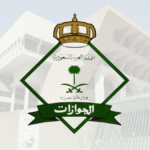Basic Arabic Phrases for Living in Saudi Arabia
Welcome to your journey of learning Arabic, a language rich in history and culture! Whether you’re in Saudi Arabia for work, study, or personal reasons, learning Arabic can significantly enhance your experience in this vibrant country. This guide is designed to help beginners like you take their first steps in understanding and speaking Arabic.
Understanding the Basics
The Arabic Alphabet: Start by familiarizing yourself with the Arabic script, which consists of 28 letters. Unlike English, Arabic is written from right to left. Each letter has up to four different forms, depending on its position in a word.
| Arabic Letter | Transliteration |
|---|---|
| أ | Alif |
| ب | Baa |
| ت | Taa |
| ث | Thaa |
| ج | Jiim |
| ح | Haa |
| خ | Khaa |
| د | Daal |
| ذ | Dhaal |
| ر | Raa |
| ز | Zay |
| س | Siin |
| ش | Shiin |
| ص | Saad |
| ض | Daad |
| ط | Taa |
| ظ | Dha |
| ع | ‘Ayn |
| غ | Ghayn |
| ف | Faa |
| ق | Qaaf |
| ك | Kaaf |
| ل | Laam |
| م | Miim |
| ن | Nuun |
| ه | Haa |
| و | Waaw |
| ي | Yaa |
Pronunciation: Arabic pronunciation can be challenging for beginners. Pay special attention to sounds that are not present in English, such as the ‘Kh’ (خ) and ‘Qaf’ (ق).
Recommended for You: 10 Benefits of Working as an Expat in Saudi Arabia
Essential Phrases and Vocabulary
Greetings and Common Phrases: Learn basic greetings like “As-salamu alaykum” (peace be upon you) and “Shukran” (thank you). These phrases are a good way to show respect and start engaging with local communities.
Numbers and Days of the Week: These are practical aspects of the language that will help you in daily activities like shopping and scheduling.
| Arabic Numerals | Arabic Name | Transliteration | English Names |
|---|---|---|---|
| ٠ | صفر | Sifr | Zero |
| ١ | واحد | Wahid | One |
| ٢ | اثنان | Ithnan | Two |
| ٣ | ثلاثة | Thalatha | Three |
| ٤ | أربعة | Arba’a | Four |
| ٥ | خمسة | Khamsa | Five |
| ٦ | ستة | Sitta | Six |
| ٧ | سبعة | Sab’a | Seven |
| ٨ | ثمانية | Thamaniya | Eight |
| ٩ | تسعة | Tis’a | Nine |
| Arabic Days of the Week | Transliteration | English Days of the Week |
|---|---|---|
| الأحد | Al-Ahad | Sunday |
| الاثنين | Al-Ithnayn | Monday |
| الثلاثاء | Ath-Thulatha’ | Tuesday |
| الأربعاء | Al-Arba’aa | Wednesday |
| الخميس | Al-Khamis | Thursday |
| الجمعة | Al-Jumu’ah | Friday |
| السبت | As-Sabt | Saturday |
Grammar Basics
- Nouns and Verbs: Understand the structure of simple sentences in Arabic, focusing on the role of nouns and verbs.
- Gender and Plurals: Arabic nouns and adjectives are gendered. Also, there are different ways to form plurals, which is crucial for proper communication.
Also Read: How to Obtain a Drivers License in Saudi Arabia
Cultural Insights
- Language and Culture: Arabic is closely tied to the culture and traditions of Saudi Arabia. Understanding cultural references and idioms can enhance your language skills.
- Common Do’s and Don’ts: Learn about cultural norms and etiquette related to language use to avoid misunderstandings.
Practice and Immersion
- Language Partners and Groups: Engage with native speakers or join language exchange groups to practice.
- Utilize Technology: Use language learning apps and online resources tailored for Arabic learners.
Everyday Arabic Words and Their English Translations
For expatriates living in Saudi Arabia, knowing some day-to-day Arabic words can greatly facilitate daily interactions and deepen cultural immersion. This section provides a list of common words and phrases that are useful in various everyday contexts.
1. Greetings and Polite Expressions:
- Hello: “Marhaba” (مرحبا)
- Good morning: “Sabah al-khair” (صباح الخير)
- Good evening: “Masa’ al-khair” (مساء الخير)
- Thank you: “Shukran” (شكرا)
- Please: “Min fadlak” (male) / “Min fadlik” (female) (من فضلك)
- Yes: “Na’am” (نعم)
- No: “La” (لا)
- Excuse me: “Afwan” (عفوا)
2. Food and Dining:
- Water: “Ma’a” (ماء)
- Tea: “Shai” (شاي)
- Coffee: “Qahwa” (قهوة)
- Bread: “Khubz” (خبز)
- Rice: “Ruz” (أرز)
- Chicken: “Dajaj” (دجاج)
- Vegetables: “Khudar” (خضار)
- Fruit: “Fakha” (فاكهة)
3. Shopping and Bargaining:
- Price: “Thaman” (ثمن)
- How much?: “Kam al-thaman?” (كم الثمن؟)
- Expensive: “Ghali” (غالي)
- Cheap: “Rakhis” (رخيص)
- Discount: “Khasm” (خصم)
4. Directions and Places:
- Where?: “Ayn?” (أين؟)
- Right: “Yamin” (يمين)
- Left: “Yasar” (يسار)
- Straight: “Mustaqeem” (مستقيم)
- Market: “Souq” (سوق)
- Hospital: “Mustashfa” (مستشفى)
- Airport: “Matar” (مطار)
5. Emergencies and Assistance:
- Help: “Musaa’ada” (مساعدة)
- Emergency: “Tawari” (طوارئ)
- Police: “Shorta” (شرطة)
- Doctor: “Tabib” (طبيب)
- Pharmacy: “Saydaliya” (صيدلية)
6. Social Interactions:
- Friend: “Sadiq” (male) / “Sadiqa” (female) (صديق/صديقة)
- Please: “Min fadlak” (male) / “Min fadlik” (female) (من فضلك/من فضلكِ)
- Sorry: “Asef” (آسف)
- I don’t understand: “La afham” (لا أفهم)
Remember, pronunciation is key in Arabic, and some words might have different colloquial versions in different regions of Saudi Arabia. Don’t hesitate to ask native speakers for help with pronunciation and usage. Practice these words regularly, and you’ll find your daily life in Saudi Arabia becoming more engaging and enjoyable.
You Might Also Like: How to Apply for a Family Visit Visa in Saudi Arabia
Conclusion
Embarking on the journey of learning Arabic is both challenging and rewarding. Remember, language learning is a gradual process, and every step you take brings you closer to a deeper understanding of Saudi Arabia’s culture and its people. Stay motivated, practice regularly, and, most importantly, enjoy the process!






